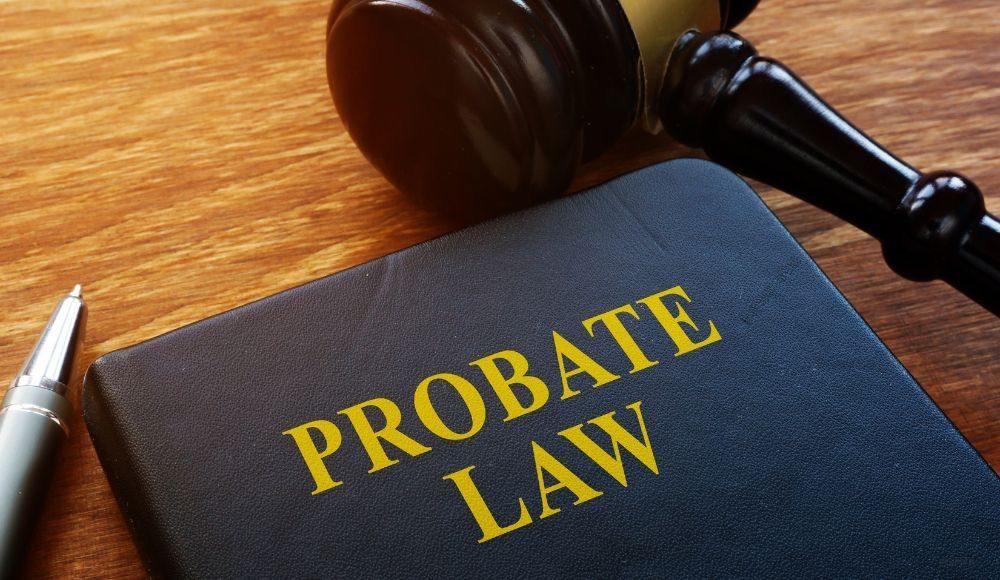Navigating the Estate Administration Process

The estate administration process is often complex; navigating it alone can be daunting. Understanding the essential steps and responsibilities can help streamline the process. Here is what you should know:
Steps in the Process
The estate administration process involves several steps to manage and distribute a deceased person's assets. Here's an overview of the main stages:
Initial Steps
- Locate essential documents, including the deceased's will, trusts, financial records, and other vital papers.
- Obtain death certificates from the funeral director.
- Notify relevant parties, such as Social Security, creditors, beneficiaries, and heirs.
- File a petition to probate the estate with the local probate court.
Asset Management
- Identify and secure all assets, including property, bank accounts, investments, and personal belongings, by inventorying them.
- Appraise the assets to determine their market value at death.
- Set up a bank account in the estate's name to manage finances.
Debt and Tax Obligations
- Inform creditors of the death and the probate process.
- Settle outstanding debts, file necessary tax returns, and pay applicable taxes.
- Submit a complete inventory of assets and their values to the court.
Distribution and Closing the Estate
- Create a detailed record of all financial transactions related to the estate.
- Allocate the remaining assets to beneficiaries according to the will or state law.
- Submit a final accounting and distribution plan to the court for approval.
- Once approved, distribute assets and officially close the estate.
Role of the Executor
The estate's executor manages and settles the deceased's estate according to the will or, if no will exists, under state laws. Their responsibilities include gathering and valuing assets, paying debts and taxes, and distributing the remaining assets to the beneficiaries.
Executors manage day-to-day tasks such as closing accounts and maintaining property, ensuring efficiency and legality. They must communicate with beneficiaries, legal professionals, and financial institutions to ensure compliance with legal obligations and the deceased's intentions, making this role both a fiduciary duty and a position of trust.
Dealing with Debts and Taxes
Debts and taxes are crucial to the estate administration process. Here is an overview of managing these obligations:
Debt Obligations
First, the executor compiles a comprehensive list of the deceased's liabilities, including outstanding loans, credit card debts, and unpaid bills.
They inform creditors of the death and allow them to make claims against the estate. After verifying the legitimacy of each debt claim, the executor
pays them in a specific order as determined by state law.
Tax Obligations
The executor files the deceased's final personal income tax returns (federal, state, and local) and pays the taxes before distributing assets to beneficiaries. The estate might also be subject to federal or state taxes depending on its value. The executor is also responsible for paying property taxes on any real estate owned by the estate until it is transferred or sold.
By carefully managing these obligations, executors can ensure that the estate's debts and taxes are appropriately handled, fulfilling their fiduciary duty and protecting the interests of the beneficiaries.
Don't Delay – Secure Your Future with Estate Planning Today
Creating your estate plan today makes the administration process smoother in the future. Tomorrow might be too late to make those vital decisions that protect your family and your future. Delaying could mean leaving your loved ones in a vulnerable position. Take action now while you can shape your legacy.
If you seek an estate planning lawyer who offers efficient and effective estate planning and trust services, look no further than the experienced attorneys at Bingaman Hess.
This article is for informational purposes only and does not constitute legal advice. No one may rely on this information without consulting an attorney. Anyone who attempts to use this information without attorney consultation does so at their own risk. Bingaman Hess is not and shall never be responsible for anyone who uses this information. It is not legal advice.
News & Information
Contact Us Today
Sound legal advice is based on years of training, hard work, and passion, as well as familiarity with legislation and precedent and sound consideration. You’ll find all that and more at Bingaman Hess.
We will get back to you as soon as possible
Oops, there was an error sending your message.
Please try again later!
Wyomissing
Kutztown
Harrisburg
610.374.8377
2601 N. Front Street
Suite 206
Harrisburg, PA 17110
Media
Wilkes-Barre
610.374.8377
12-14 West Northampton Street,
Suite 7
Wilkes-Barre, PA 18701
We have been providing exceptional service, advice, and representation to clients for more than 60 years.
Serving Berks, Lehigh, Northampton, Bucks, Montgomery, Philadelphia, Chester, Delaware, Lancaster, Lebanon, Dauphin, Schuylkill, York, Carbon, Luzerne, Monroe, Columbia and Northumberland counties
The Bingaman Hess web site is intended to provide information (not advice) about the firm, its lawyers and new legal developments. Visitors to this web site should not act upon this information without consulting with legal counsel. Transmission and receipt of materials provided by Bingaman Hess's web site is not intended to and does not create an attorney-client relationship. Please be further advised that the act of sending e-mail to an attorney at Bingaman Hess will not create an attorney-client relationship. If you are not currently a client of Bingaman Hess your e-mail will not be privileged and may be disclosed to other persons. This web site is not intended to be advertising and Bingaman Hess does not wish to represent anyone desiring representation based upon viewing this web site in a state where this web site fails to comply with all laws and ethical rules of that state. This web site is meant to be informational only, consistent with our profession's obligation to help inform not only our clients but to cultivate knowledge of the law in the public in general.
Bingaman Hess Attorneys at Law, All Rights Reserved










